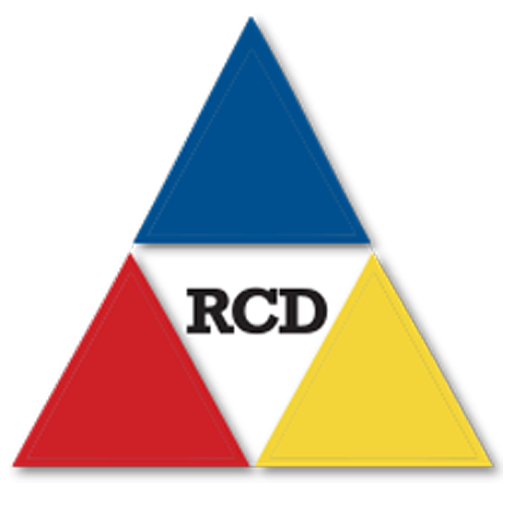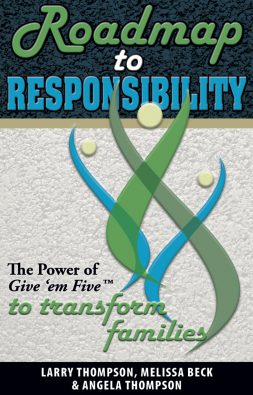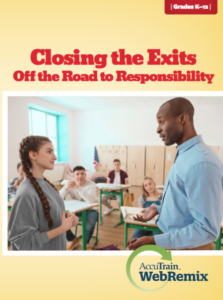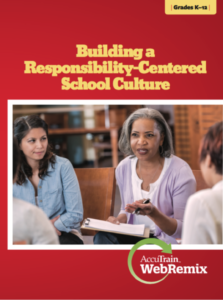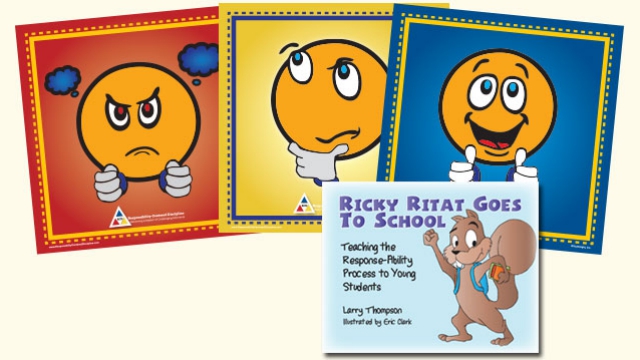Responsibility-Centered Discipline Resources
Roadmap to Responsibility: The Power of Give 'em Five to Transform Schools
Facing disciplinary conflicts and challenging moments with students is hard enough, but not knowing what to do is particularly stressful. Roadmap to Responsibility: The Power of Give ‘em Five™ to Transform Schools represents an unprecedented paradigm shift in the area of school discipline. It provides a step-by-step plan for making a long-term, positive difference in schools that will make educators less stressed and more empowered, while influencing students positively for the rest of their lives.
Roadmap to Responsibility: The Power of Give 'Em Five to Transform Families
Parenting children well is a challenge. Roadmap to Responsibility: The Power of Give `em Five to Transform Families will help adults identify their areas of strength as well as areas where they may struggle or desire to grow. Responsibility-Centered Parenting (RCP) provides a clear roadmap and proven strategies for helping parents grow in confidence, stay motivated, and keep children on the Road to Responsibility as they grow to become mature, responsible adults. Discover the three different styles that parents tend to use: Permissive, Authoritarian and Authoritative.
The concepts and strategies shared in this book, including the Give `em Five conversation, help create a balanced parenting style while pointing out common “exits” off the Road to Responsibility that parents may create for their children. Responsibility-Centered Parenting offers renewed hope for families. Regardless of culture, income level, or family makeup, when it comes to the children in their lives, parents, grandparents, and guardians long for positive, lasting solutions and Roadmap to Responsibility: The Power of Give `em Five to Transform Families can help achieve just that.
WebRemix: Closing the Exits Off the Road to Responsibility
Can responsibility be taught? How can educators move from “making” students behave to helping students learn self-management? This is a major, but necessary, paradigm shift – moving from enforcement to a focus on student growth and providing essential life skills. Many students will grasp for any available path to avoid taking responsibility. Do some of the following excuses sound familiar?
- “I didn’t know”
- “No one told me that”
- “I’ve done it before and no one cared”
- “She/he just doesn’t like me”
- “Other kids were doing it too”
These excuses all represent common “exits” that students take o the “Road to Responsibility.”
In this timely 90-minute webinar, author Larry Thompson will discuss how traditional discipline practices actually allow students to continue using those exits to avoid responsibility. He will also share six essential practices that will close those exits and help students learn self-management. These six essential practices include:
- Benefits for Changing Behavior» Clear Expectations
- Emotional Control
- Consistency
- Leadership in Challenging Moments
- Response-Ability
WebRemix: Building a Responsibility-Centered Culture
Discover The Most Important Component for Building a Positive Culture in Your School – Relationships
Student-to-teacher, teacher-to-teacher, teacher-to-administrator, administrator-to-student – all of these are critical to a healthy environment where everyone feels heard and valued.
In this WebRemix, presenter Larry Thompson, M.Ed. will illustrate how the culture in a school can become toxic when students are allowed to shirk responsibility for their actions and lay the blame on teachers. Educators may then be at odds with administrators as the students are returned to the classroom with no apparent resolution. Teachers don’t feel supported, administrators are overwhelmed and turnover may be high.
Larry explains how the pyramid of responsibility is built on relationships between student, teacher and administrator. Viewers will learn how critical consistency is and how it can help not only with classroom management but also with calibrating office referrals. When students understand expectations and teachers help them accept responsibility when there is a breakdown, o ce referrals are reduced. But, when there are referrals, the administrator should continue the process of coaching students to accept responsibility for their actions. With a foundation of clearly stated expectations, practice of guided conversations and training in handling challenging moments, school culture becomes healthy and robust!
AccuTrain’s WebRemix programs are 60- to 90-minute in-depth training sessions that were originally presented to a live audience via technology. Each course has been edited and enhanced to improve viewing experience, while retaining the character of the original live presentation.
Give 'Em Five: A Five Step Approach for Handling Challenging Moments
Have you ever been faced with a student who is defiant, oppositional, “in-your-face” and you momentarily lose your ability to handle the situation as well as you would like?
The Give ‘Em Five approach has been used with much success by classroom and special education teachers, administrators, counselors and support staff across North America. This book places at your fingertips 30 case examples of challenging moments and provides specific recommendations for how to handle different situations with students who are attention-seeking, manipulative, apathetic or hostile. Collectively, these cases can help you and your colleagues to gain fresh ideas for how to handle those moments when students need our feedback, but the right words aren’t always there for us.
In particular, this book will help you gain fresh ideas for dialoguing with students who respond to you with different intensity:
- Level 1—Compliance
- Level 2—Moderate Noncompliance, and
- Level 3—Severe Noncompliance
Response-Ability Mats and Ricky Ritat Goes to School
Response-Ability Mats can be a useful tool for Pre-K through Grade 2. The child sits on the first mat to regain composure, then moves to the second mat when he or she is ready to begin processing what happened and what he or she could have done differently. The child moves to the third mat when he or she is ready to work with the teacher.
Created as part of the Response-Ability Process within the Responsibility-Centered Discipline program, these sturdy, 12-inch, cushioned, anti-microbial mats are designed to develop self-regulation skills in students and to help students take ownership of their own behaviors. The Response-Ability Process is sometimes confused with traditional time-based processes; including timeout and detention. Response-Ability Mats are not intended to be used as a punishment or consequence. The objective is to teach students to recognize when they are too emotionally charged to make the best decisions and to get them to a point where they can handle situations in a positive manner.
The four-color, fully illustrated Ricky Ritat Goes to School book is designed to help educators teach the Response-Ability Process to young students.
